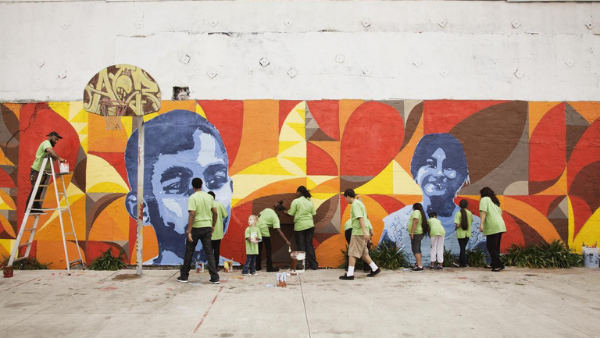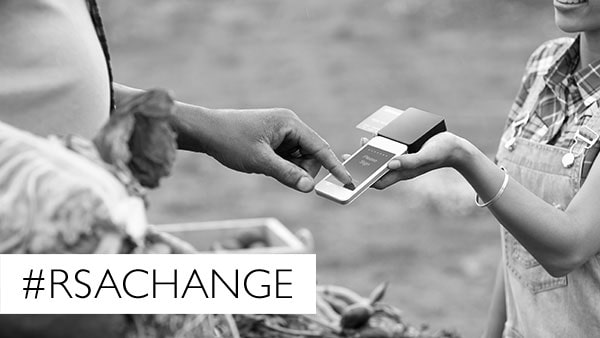The third sector is playing a critical role on the front line during the Covid-19 crisis.
From supplying people with essentials like food and medication to offering advice, counselling, or a listening ear for those who are lonely and isolated, the third sector is responding to the physical, emotional, spiritual, and social needs of citizens during these unprecedented times.
It is likely that demand for voluntary sector support will grow substantially and for years to come as the full psychological impact of Covid-19 reveals itself.
Such demand will of course be most acute in areas of greatest disadvantage. Especially so if the financial burden of this crisis falls heaviest on the shoulders of those who can least afford it, as was the case after the 2008 economic crisis.
How can the voluntary sector adapt to the complexity of the challenges ahead? Based on my experiences at Wellbeing Enterprises, I believe we need to encourage participatory and democratic decision making.
Why? We need to strengthen collaborative working within the sector and with citizens to be a part of a ‘whole systems’ approach to improving wellbeing.
The factors that support collaboration
There is an incredible amount of goodwill and generosity in the voluntary sector, and it is often in times of crisis that this is more outwardly visible as organisations come together to co-ordinate efforts.
3 things have helped support greater dialogue and collaboration during Covid-19:
The use of digital technology
Platforms like Zoom and Google Hangouts have been extraordinarily helpful in connecting organisations and people.
I have personally enjoyed meeting new people, and learning first-hand about the work of organisations of all different sizes - from large charities to self-help groups.
It has reaffirmed to me just how important everyone’s contribution is throughout this crisis and beyond it.
There will of course always be a need and desire for meeting in person (I’m reminded of the saying ‘in a world full of iPads and iPhones, let’s not forget the value of eyeballs!’), however I do think technology can offer a helpful workaround for the logistical challenges of convening larger numbers of voluntary organisations.
I hope as we move forward, that the convening power of digital technology is harnessed more widely to ensure there is greater opportunity for open debate, the setting of collective priorities and as a tool to support democratic decision making in the sector and with communities.
Developing a shared sense of purpose
There is no doubt that this crisis has helped crystallize a strong sense of shared purpose among partners in the areas where I work.
Minimising harm and safeguarding the most vulnerable has most certainly been an overarching priority and understandably so.
I think this growing sense of shared purpose has helped to focus the sector’s collective attention outward, towards the community. This has enabled greater dialogue with citizens and stakeholders about what matters to them and what support and assistance they would like to see.
It has also encouraged greater dialogue between sector professionals and citizens about how we might shape the future.
I have enjoyed conversations with colleagues about how we can come together in a more integrated way in future so that we can work with the complexity of the social challenges that communities are facing, rather than focusing on downstream, proximal issues which often fail to deliver lasting results.
Dr Alex Scott-Samuel and Dr Katherine Smith, in their 2015 paper, describe the tendency of policy actors to default to downstream, easily tackled exposures such as lifestyle factors as a way of tackling health inequalities as ‘fantastical’. Instead, they argue that we ought to re-orientate our efforts towards bringing about the visions that citizens themselves have for a better future. In 2018 I had an opportunity to work with Dr Katherine Smith, voluntary sector partners, and citizens to undertake some ‘dream work’ in the Halton area that informed a citizen-led Dream Manifesto which has become an important mandate, or shared purpose for community organisations to collectively champion the change that people want and need.
Developing our shared purpose has enabled more of us to open up about the things that matter to each of us individually and importantly to look for common ground and seek out consensus. This has strengthened relationships and has sparked all sorts of imaginative ideas and potential future solutions.
For example, there has been much discussion about how collective campaigning and activism might mobilise the grassroots energy for change in communities we need for social movements to take root if we are to build back better, together.
Sharing knowledge and resources
Voluntary sector collaboration during covid-19 is refreshing, because competition for finite resources often promotes competition.
There are lots of factors that have promoted competition:
- the introduction of new public management approaches in the public sector
- ever reducing funding streams (especially so in times of austerity)
- long standing, hierarchical power differentials that can result in ‘dominant’ organisations commanding resources and putting the breaks on alternative ways of working.
Despite these longstanding issues, there is lots of goodwill and generosity in the sector which I have found personally moving and especially so during lockdown.
For example:
- staff and volunteers willing to go above and beyond their duties to help citizens and partner organisations
- the gifting of resources and supplies
- sharing networks and information and providing practical and emotional support to each other.
This is vital to ‘whole systems’ approaches which prioritise sharing and learning as critical success factors.
Building back better
So, what about the future? Can we secure these gains going forward?
I think the current crisis has provided an opportunity for sector partners to work more closely together.
We can build on the gains outlined above by co-creating democratic decision-making processes. This would allow sector players and citizens to debate and vote on proposed courses of action and directly influence the future direction of the sector locally and regionally. Digital platforms like Citizen OS or nVotes offer potential solutions for enabling greater democratic participation.
Strengthened relationships between actors and organisations encourages healthy debate, consensus building and compromise, rather than unilateral action.
For collaborative working to become the new normal, everyone who has a part to play in bringing about societal change needs to feel heard, understood, and respected.
This is impossible to achieve when battles for power play out in the sector which inevitably lead to winners and losers. For the third sector to become system change agents, it must distribute power.
One way to achieve this is through the creation of voluntary sector congress or assembly structures in local areas, in which voluntary sector organisations vote to elect their representatives for defined tenures, and who then hold them to account through those democratic structures.
Voluntary organisations can vote to champion sector priorities that matter most to them [and their citizens] and these can be debated openly and constructively together. These sorts of democratic structures will ensure the diverse views and opinions of sector members are heard and it can also mitigate the risks of vested interests taking precedence over the needs of the whole sector.
Democratic decision-making in the voluntary sector will strengthen collaborative working and encourage greater reciprocity, good will and trust among sector players.
This is vitally important because change happens at the speed of trust. No quicker, no slower.
Join our community and help shape change in a post-covid world.
Mark Swift FRSA is Co-Founder and Chief Executive at Wellbeing Enterprises CIC
Related articles
-
Levelling up and participatory democracy
Riley Thorold
Riley Thorold explains how recent RSA work on public participation can inform this broader shift towards a more active and empowering democracy when levelling up.
-
Boosting community enterprise
Ian Burbidge
Building strong foundations for the future requires collective effort, with the public and private sectors both playing a part.
-
Is there such a thing as a UK democracy sector? Does it work?
Joe Mitchell
Democracy in the UK needs to be defended and strengthened to deal with the challenges ahead.




Join the discussion
Comments
Please login to post a comment or reply
Don't have an account? Click here to register.
I wholeheartedly agree with your article about your response by the voluntary sector to the COVID crisis and the way it has collaborated and shared knowledge and resources. I support a number of Learning Disability charities through Inspiring Scotland. Each has responded brilliantly to the COVID crisis by pivoting their business models and easing the burden on statutory services, ensuring that the people they serve, continue to be served. We have recently come together to write a paper with an ask to focus on Building Forward Differently rather than Building Back Better. There is a concern by leaders that returning to how it was pre-COVID cannot happen. Our call is that this is the perfect opportunity to take the Human Rights approach, in order that all services are redesigned with the individuals they serve at front and centre. This is a sentiment that appears to be reflected at all levels across sectors, but actually doing something about it could be quite overwhelming.
My biggest concern is that as lockdown and restrictions ease, we lose momentum and focus and the old normal becomes comfortable again, and as it requires less upfront investment, everything stays the same - except that the demand on the voluntary sector services go up. For system reform, I agree that democratic decision-making using digital technology is key. However, a significant issue here is digital exclusion - a huge number of people with Learning Disabilities have been isolated with no access to broadband or mobile data, or don't have the hardware. Even with easing of restrictions many older people with Learning Disabilities are fearful of leaving their homes. We are all working to try and remedy this, but already during lockdown higher level emergency meetings have had to take place without the people the decisions concern. As time goes on in a virtual world, we have to make sure that as organisations we're not simply 'representing' people, but enabling people to speak for themselves, and overcoming digital exclusion is fundamental to developing true online democratic decision-making.